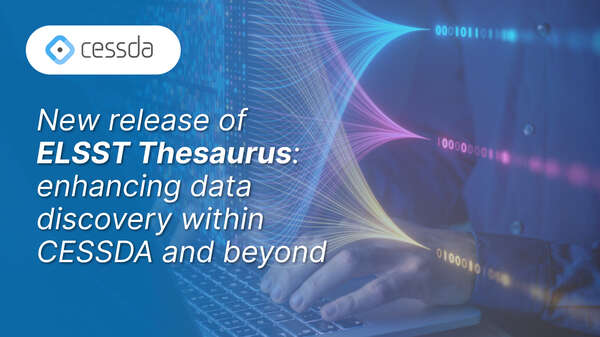
New release of ELSST Thesaurus: enhancing data discovery within CESSDA and beyond
The European Language Social Science Thesaurus (ELSST) is a broad-based, multilingual thesaurus for the social sciences. It is available in fifteen languages: Czech, Dutch, Finnish, French, German, Greek, Hungarian, Icelandic, Lithuanian, Norwegian, Romanian, Slovenian, Spanish and Swedish.
The September 2024 release of ELSST (Version 5) includes revisions to terms associated with civil status, family structure, disability, and the education of students with special educational needs and disabilities. Work has also begun to update the science and technology hierarchy.
A major development since the last release of the thesaurus is the link that has been established between ELSST and CESSDA Data Catalogue (CDC). The CDC contains descriptions of more than 40,000 data collections held by CESSDA’s Service Providers, originating from over 20 European countries. Clicking on the ‘Keyword search’ link for a term in ELSST finds all CDC catalogue records that have been assigned that term as a keyword, or which have a keyword from another vocabulary that matches it. Links are also provided from the CDC back to the ELSST thesaurus. These innovations aim to enhance the discoverability of data in the CDC by enabling users to learn more about the concepts and navigate through the thesaurus structure.
All language versions have been updated except for Finnish and Romanian where no new translations have been added to this release. ELSST previously contained a Danish translation, which is no longer available.
For more information see the ELSST documentation, including the Version 5 Release notes.
Background
ELSST is owned and published by CESSDA. The thesaurus is used for data discovery within CESSDA and facilitates access to data resources across Europe, independent of domain, resource, language or vocabulary. It covers the core social science disciplines: politics, sociology, economics, education, law, crime, demography, health, employment, information and communication technology and environmental science.